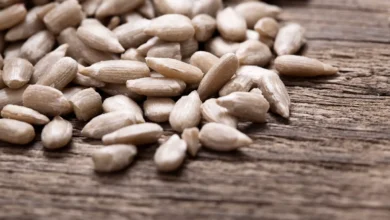Mangosteen Fruits: What are the properties?

Mangosteen is a tropical fruit that is known as Garcinia Mangostana in scientific terms. It is an exotic superfood with a lot of powerful properties and good taste. It is also famous for the name “queen of the fruits’ ‘. In ancient history, once a queen declared a reward for the one who will bring fresh mangosteen fruit for her. It is a very rare fruit to find everywhere. It is a fruit that is mostly available in the tropical forests of Indonesia, Malaysia and the Philippines, although we can also find it in some areas of Sri Lanka and India.
In some regions, we are called Indian mangosteen or jobo to mangosteen. It is a small fruit with a purple-coloured hard outside but white-coloured with soft pulp. The pulp is edible and provides a number of benefits to the body. It is great in flavour to eat raw. You can also prepare mangosteen juice to drink.
Properties of Mangosteen
There are various properties linked with the mangosteen fruit which provide benefits to the body.
Antioxidant Properties: Mangosteen is rich in the powerful antioxidant, named xanthones. Mangosteen is famous for its xanthones properties too. It is a powerful component that strengthens the cells by reducing the free radicals and damaging pathogens as well as helping to slow down the ageing signs and protecting against degenerative diseases. When the level of free radicals is high in the body, it also causes damage to the immune system. Having powerful antioxidant properties increase the immune system, makes skin glowing and youthful and many more.
Antimicrobial and anti-inflammatory properties: Mangosteen’s xanthones are known to possess antibacterial, antiviral, and antifungal effects. Some types of Staphylococcus bacteria can inhibited by the topical use of mangosteen extract, which enhances dental health by lowering the risk of tooth decay and bolstering gum. The presence of anti-inflammatory properties can used to reduce the inflammation from the skin as well as effective to reduce inflammatory diseases, such as heart disease, and diabetes.
Anticancer properties: The xanthones of the mangosteen are effective to prevent the development of a tumour or stop the growth of various types of the tumour as per one of the studies conducted in 2011. Well, there is no treatment available for the tumour. Yes, we can state that mangosteen use can reduce the inflammation from the tumour but not more than that.
Vitamin C: Mangosteen is rich in vitamin C. Vitamin is very important to improve the body’s resistance to flu and viruses, strengthens immunity and is useful for collagen formation, and skin and joint elasticity.
Helps fight viruses and bacteria: Mangosteen contains 84 different forms of xanthones, which are antiviral, antifungal, antibacterial, and antiparasitic compounds. Mangosteen has vitamin B12, which help to strengthen liver and nervous system and is also fight germs and fungus.
Beneficial for our muscles: Potassium, which is crucial for the healthy operation of the neurological and muscular systems, is abundant in this food.
Effect on satiety: The mangosteen’s pulp and rind are abundant in hydroxy citric acid (HCA), which slows the production of fat, prevents too much cholesterol in the blood and gives us a sense of fullness.
Antiproliferative properties: Due to the presence of polyphenols, mangosteen has antiproliferative properties which help to prevent the development and growth of malignant cells. As per the study, it can use in some treatment of malignant cells in 1000 people. They observed positive results in the maximum number of people.
How should we take the mangosteen fruit?
If mangosteen fruits are available at your location, it is one of the best ways to get all the properties of mangosteen. Wash the mangosteen fruits from the outside. Cut the outside skin into two parts with the help of a knife and peel it off little by little. Outside is hard, so take time and be careful. In this way, we will obtain some segments of mangosteen with viscous pulp. This fresh white pulp is ready to eat. Mangosteen pulp is very flavourful and tasty, so you can eat it like mango pulp.
If mangosteen fruit is not available at your location, then get mangosteen juice or some extract from the market. Mangosteen juice is very easy to find on the online or offline market. It is very easy to drink. You can have 15-20 ml of mangosteen juice twice a day to get the benefits of mangosteen properties. While purchasing, make sure to go with high-grade mangosteen juice from the best brand that is selling pure mangosteen extract. Well, it is also easy to prepare mangosteen juice at home. You can grind the mangosteen pulp with some water. There is no need to add sugar to mangosteen juice.
Mangosteen can add to smoothies, homemade fruit salads, salads, and even yoghurt. As a tasty, satiating, and healthful fruit, mangosteen is highly advisable to be had as a snack or light dessert.



